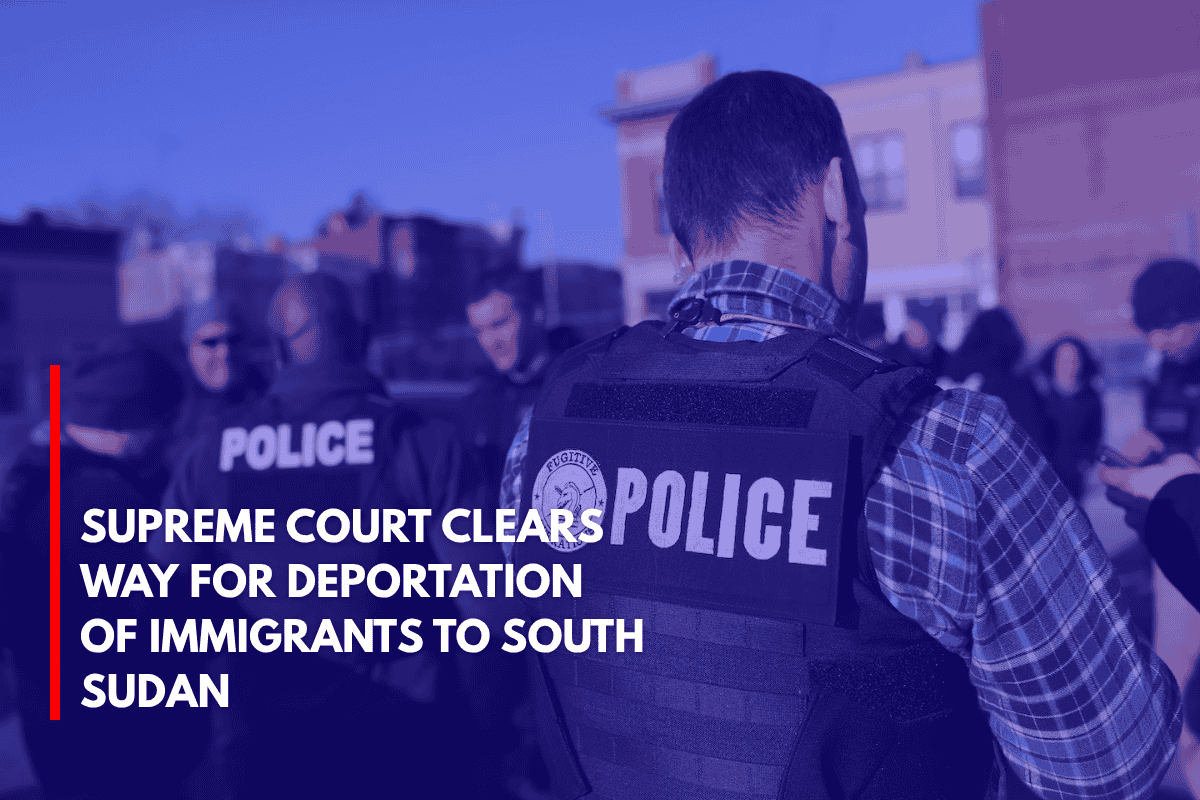On Thursday, the U.S. Supreme Court cleared the way for the deportation of several immigrants who were initially scheduled to be sent to South Sudan, a country ravaged by war and where the immigrants have no ties.
This decision follows the court’s ruling that immigration officials can quickly deport people to third countries. The court overruled a lower court decision that had allowed these immigrants to challenge deportation to countries where they could face danger.
The Controversial Decision
The ruling allows the South Sudan-bound flight to proceed, despite a detour in May to a naval base in Djibouti. The detained migrants, who had been convicted of serious crimes, were held in converted shipping containers while waiting for the flight.
The Supreme Court’s decision now makes it clear that the deportation to South Sudan can move forward, even though a Massachusetts federal judge, Brian Murphy, had initially halted the deportation.
Tricia McLaughlin, Assistant Secretary of the Department of Homeland Security, confirmed that the trip to South Sudan would be completed the following day.
Legal and Political Reactions
The Supreme Court’s majority decision also rendered Judge Murphy’s ruling on the South Sudan flight “unenforceable”. However, the court did not explain the full legal reasoning behind this emergency decision.
Justices Sonia Sotomayor and Ketanji Brown Jackson, both liberals, disagreed with the ruling. They argued that the decision gives the government special treatment and unfairly bypasses standard procedures.
Justice Elena Kagan also expressed disagreement, although she acknowledged that the ruling counteracted Murphy’s findings regarding the flight.
The Threat of Danger in South Sudan
The migrants in question face a grave situation if deported to South Sudan. Experts warn they could face imprisonment, torture, or even death due to the escalating political violence in the country.
Trina Realmuto, Executive Director of the National Immigration Litigation Alliance, stated that the deportation would put these individuals in perilous conditions, including the risk of detention upon arrival.
Trump’s Administration and Immigration Crackdown
This case comes amid a sweeping immigration crackdown by the Trump administration, which has pledged to deport millions of undocumented immigrants. The administration strongly disagreed with Judge Murphy’s decision, calling it an act of defiance.
McLaughlin hailed the Supreme Court’s intervention as a win for the rule of law and for the safety and security of the American people. Attorney General Pam Bondi also criticized Murphy, calling him a “rogue district court judge.”
Agreements with Other Countries
The Trump administration has arranged with other countries to house immigrants if they cannot be immediately returned to their home countries. The eight individuals being sent to South Sudan had been convicted of crimes in the U.S. and had final orders for deportation.
Although Judge Murphy did not block deportations to third countries, he ruled that immigrants should have a chance to argue that they would face danger if sent to a country outside their homeland, even if they had already exhausted their legal options.
Conditions for the Migrants
The eight men, along with their guards, faced harsh conditions at the Djibouti naval base while awaiting their flight. After Murphy’s ruling, which found the government had violated his order by failing to allow the migrants to challenge their deportation, the men expressed their fear of being sent to South Sudan.











Leave a Reply